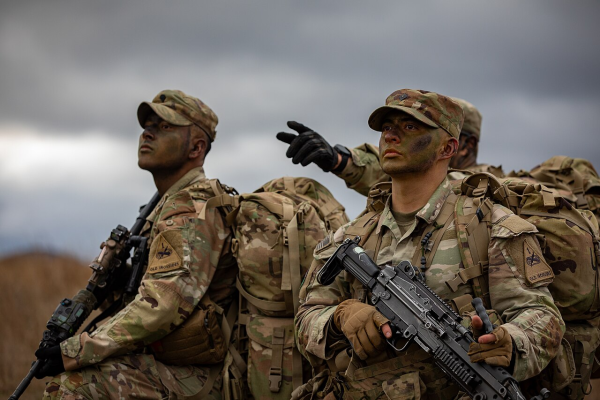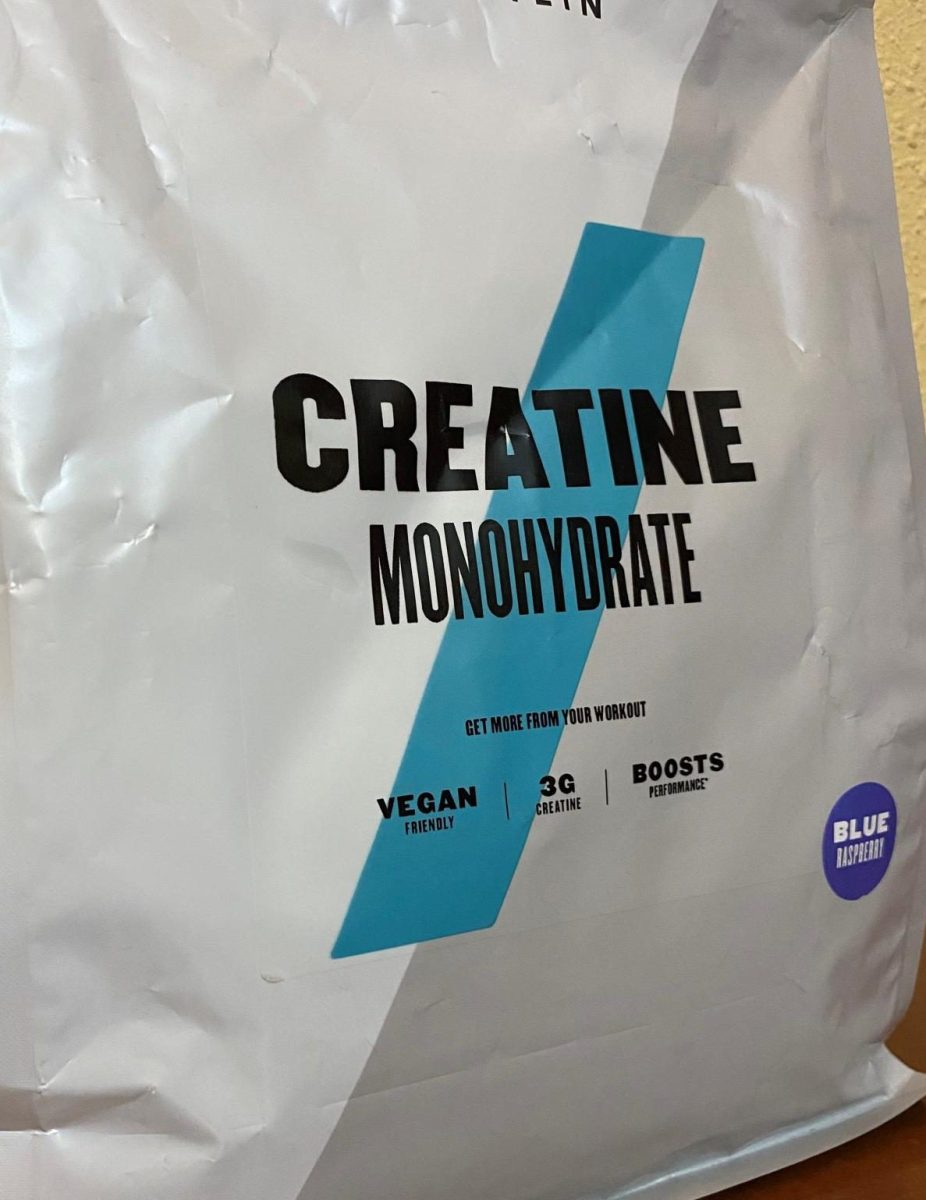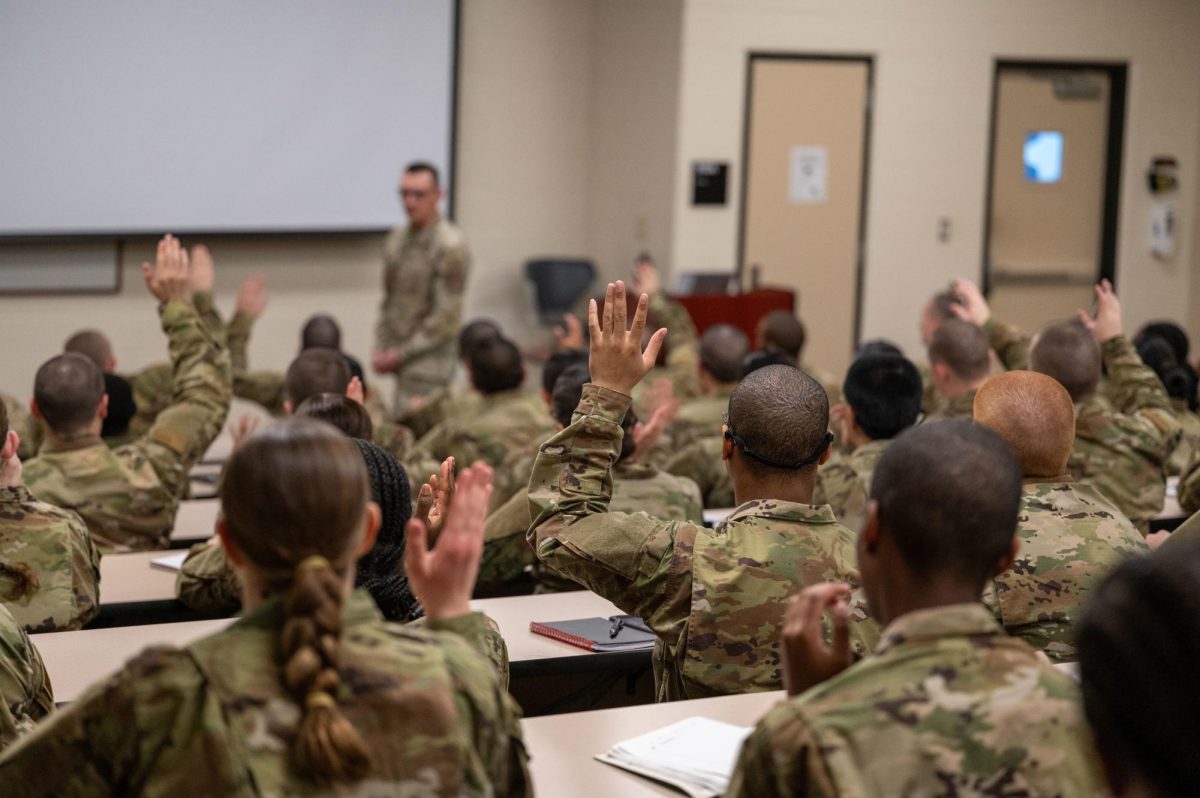As technology advances further and further, new jobs are created, and some are rendered obsolete. It’s a natural cycle in America. However, there is one job that, no matter what, will never die. What is this job?
Serving the country in uniform in the military.

This is because it is one of the most necessary jobs out there, especially right now, with what’s going on in: Ukraine, Russia, Israel, Palestine, and Syria.
Aside from that, it’s also quite appealing to people who wish to receive the valuable benefits servicemen and women obtain, such as getting a cheaper education and healthcare. Others might be interested in it due to work opportunities, to bond with others, to find meaning in life, and to even climb out of poverty.
However, there are, of course, certain things that someone should take into consideration before deciding to take the oath to be inducted into the military.
First off, what branch is best for the enlistee?
Marine recruiters will point towards the traditions and having the label of “Marine” attached to your name, for example. On the other hand, Army recruiters will tout educational benefits. Air Force recruiters will parade around their working environment and openness to those with degrees. Navy recruiters will appeal to one’s sense of adventure by mentioning the potential duty stations you may be stationed at across the globe.
However, I’m going to be frank with you: Recruiters are not always honest. I bet they sleep like babies at night after convincing an 18-year-old kid into signing up even though they may not have been completely honest or were possibly very dishonest.
I’ll give you an example. A common tactic is to tell potential recruits that (for the Army at least) you can select any job you want upon enlisting. Well, that is true…
…for a minority of enlistees.

Why only a minority? Well, you have to earn a practically perfect score on the Armed Services Vocational Aptitude Battery (ASVAB) test to be able to select any job, known as an MOS (Military Occupational Specialty), you want. Certain MOSs’ have a minimum score as well. If you do moderately well, they’ll select for you; however, when you enlist, you’ll have provided a list of desired MOSs, and as long as they aren’t crazy longshot ones, you’ll probably get one of the ones in your list.
But if you barely pass, yeah, don’t expect to be an artilleryman or a medic any time soon. They’re going to select you based on the needs of the given branch you’re joining. So, if they need cooks, you’re becoming a cook. They need supply truck drivers? You’re a supply truck driver.
Fear not, however, as there are multiple different practice tests and study guides on the ASVAB online, and from what I gather, as long as you have an average intelligence and are a coherent individual, you’ll probably not get a score so bad that they’ll select a duty for which you’d have zero desire.
I’m not going to get into the nitty-gritty of basic training and physical standards because much has been said about that elsewhere. But what I’ll talk about is what happens after. Once you pass basic training, you head to the specific school for whatever MOS you’ve been assigned to. At that school, you’ll get the specific training and practice you need to thrive in whatever MOS you are.
If it’s an MOS that requires you to be in the field, expect it to be physically demanding. On the other hand, if it’s one that requires complicated equations or observation, expect it to be mentally demanding. Once that’s done, you’re assigned to your unit, and you begin your service.
There are also optional schools you can attend afterwards. You can attend Ranger, Airborne, Air Assault, Sapper, Pathfinders, and so forth. The most famous is Ranger school. It’s run by the US Army, but anyone from any branch can theoretically attend, as long as you’re accepted and are in good standing with your leadership. People from foreign militaries even attend occasionally.
It’s known as one of the most physically and mentally demanding courses one can go through. It’s hard work, of course, with some people even dying (extremely rare) during their time there, but people still give it their best to even receive the honor of attending Ranger school. If you pass, you are awarded the prestigious Ranger scroll. After that, you return to your unit. However, having the scroll does make you eligible to enter Ranger units such as the 75th.
A minor thing to take into consideration, especially if you wear glasses like me, is that the military is willing to give you LASIK surgery on your eyes for free. Having LASIK not only improves your personal life, but it can also benefit your career, as in the field, you can lose your glasses, and if you have poor eyesight without your glasses, it might not end well. But with LASIK, you won’t have to worry about glasses to lose, because you’ll just need your improved eyes.

On that note, in general, healthcare is free in the military, as long as the injury you require care for took place while you were on duty. Say you broke your wrist when a box of equipment fell on your hand while you were doing something in a storage room. The military would help you out with that. However, if you were out at night, drinking with friends and got hurt during that, it’s probably best that you seek healthcare elsewhere.
For these duty-induced injuries, do not be brave and avoid going to a medic. Go to a medic IMMEDIATELY. I’m not telling you this for safety reasons. I’m telling you so it gets notarized. What does that do for you? Well, if you happen to need to be medically discharged and you want to claim VA benefits, kiss that possibility goodbye if you did not go to a medic. They’ll need proof that the injuries that rendered you ineligible for further service actually happened while you were conducting your duties. And without that notarization, that proof doesn’t exist.
Those are some things you might want to take into consideration if you’re interested in serving in the military. You should know these things yourself. With that out of the way, there are both advantages and disadvantages to military service.
However, I’d like to conclude by saying that not one size fits all. Everyone’s experience is different from each other. You can’t just rely on other people’s accounts. The experience varies wildly. So just be warned: what happened for one may not be the same for you.









































Jackie Breault • Feb 15, 2025 at 10:39 am
We always support the military, unfortunately until Trump stops talking about taking land by force, I would advise young people to wait 4 years at least
Chris Gramstorff • Feb 11, 2025 at 1:06 pm
As always, you guys do a pretty good job of sharing multiple perspectives. I would offer up to you that there is some factual inaccuracies in your story. I’d be happy to help fill in the gaps and perhaps give you a more complete picture.